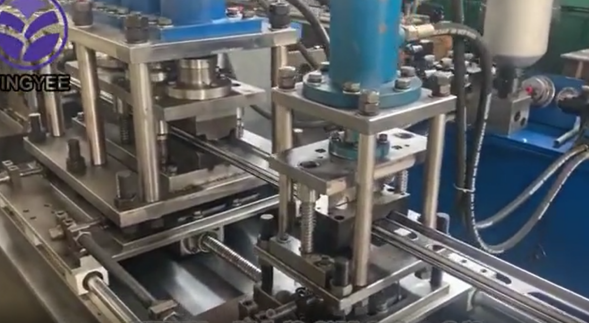
The Evolution and Importance of Round/Square Steel Pipes Forming Machines
In the world of manufacturing and construction, steel pipes play a crucial role due to their strength, versatility, and durability. Round and square steel pipes are commonly used in various applications, ranging from structural frameworks to plumbing and fluid transportation. At the heart of producing these essential components lies a sophisticated machine known as the round/square steel pipes forming machine. This technology has evolved significantly over the years, enhancing productivity and precision in steel production.
Understanding the Technology
The round/square steel pipes forming machine is designed to transform flat steel strips into pipes of various diameters and shapes, most notably round and square. The process involves several stages, including cutting, bending, welding, and curing. Firstly, the steel strips are fed into the machine, where they are cut to the desired length. Subsequently, these strips are rolled into the desired shape.
In the case of round pipes, the edges of the strip are brought together, and the machine employs a high-frequency induction welding process to fuse them. For square pipes, additional shaping techniques are involved to ensure the corners are precise and well-formed. This type of machinery is paramount in meeting the rising demand for steel pipes, fueled by rapid urbanization and industrialization globally.
Key Features and Benefits
1. Versatility One of the standout features of these machines is their ability to produce different pipe sizes and shapes without significant adjustments. Manufacturers can easily switch from producing round pipes to square ones, providing flexibility in production.
2. Automation Modern round/square steel pipes forming machines are increasingly automated. This automation leads to enhanced efficiency, reduced labor costs, and higher output rates. Furthermore, automated systems minimize human error, ensuring high-quality products with consistent dimensions.
3. Energy Efficiency Contemporary designs focus on energy efficiency, employing technologies that reduce power consumption. This not only lowers operational costs but also fulfills environmental sustainability goals.

4. Durability of Product The welding techniques employed in these machines ensure a strong bond between the edges of the steel strips, resulting in pipes that can withstand high pressure and extreme environmental conditions. The durability of the end products makes them suitable for multiple applications, including construction and automotive.
5. Smart Technology Integration Many modern machines are equipped with smart technology, allowing for real-time monitoring and adjustments during the manufacturing process. This innovation ensures optimal performance and quick problem detection, leading to reduced downtime.
Applications in Various Industries
Round and square steel pipes produced by forming machines find applications in numerous sectors. In construction, they serve as structural supports and framework materials for buildings, bridges, and other infrastructures. The automotive industry uses these pipes for exhaust systems, chassis, and other components requiring strength and resilience.
Moreover, in the plumbing and heating sectors, steel pipes are crucial for water distribution systems, gas lines, and heating systems. Their ability to handle high temperatures and pressures makes them the preferred choice for many utilities.
Conclusion
The round/square steel pipes forming machine epitomizes the advancements in manufacturing technologies that cater to the growing demands of various industries. As urban areas expand and industries evolve, the need for reliable and durable piping solutions continues to rise. The evolution of these machines not only enhances production capabilities but also ensures that the resulting pipes meet stringent quality standards required for diverse applications.
Investing in modern round/square steel pipes forming machines offers manufacturers a competitive edge in the market, enabling them to deliver high-quality products efficiently. As the industry progresses, embracing innovation in machinery will undoubtedly play a pivotal role in shaping the future of steel production and its application across various sectors, ensuring that businesses can effectively meet the demands of a rapidly changing world.